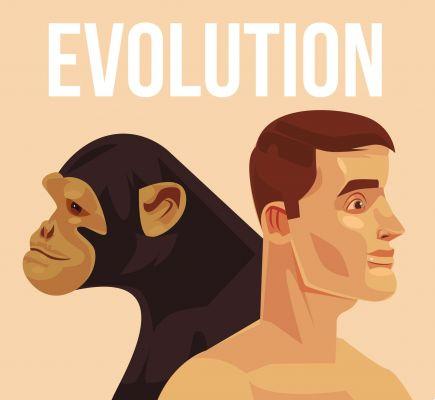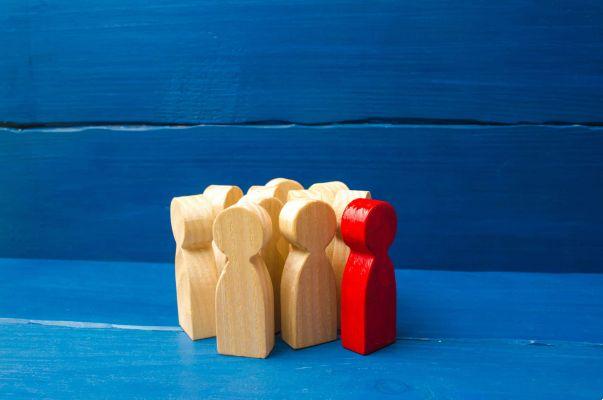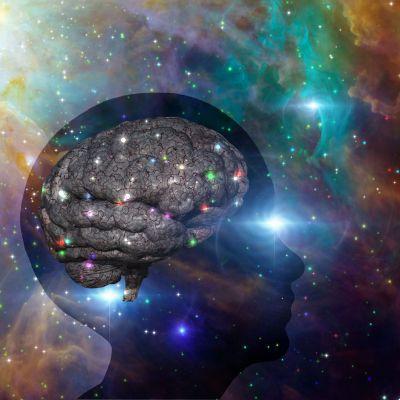Those who survived and reproduced were the ones who managed to masterfully develop the most in-demand skill of the time, what we will call here “animal instinct”.
I define “animal instinct” as our ability to physically survive within the material world. In practice, it was our ability to face other animals, to get food, to procreate our species and we cannot leave aside the ability to cure ourselves of diseases.
Animal Instinct in the Modern World
In the modern world, this ability manifests itself in our ability to defend ourselves in arguments, our desire to conquer material possessions to guarantee tomorrow's bread, the impulse to conquer people in order to perpetuate the species and even our dream of living in condominiums. or houses with high walls.
Today, whoever is here on earth is a descendant of these great instinctive warriors (there are controversies...) and we carry, we have this ability in us. Although, in many of us this intelligence is partly dormant due to low use and social-moral repression.
Bringing Darwin's adaptive logic, with the advent of agriculture we began to become sedentary and develop skills necessary for the new way of survival at the time.
Some of the new skills needed were practical: planting, understanding the cycles of nature, planning, organizing in groups and building barriers.
However, all these skills are subordinated to a main skill, which without it none of the others would be possible, namely the modern instinct, which I call the Social Instinct.

The Social Instinct
If the instinct we know is associated with physical survival on the planet (I will call it animal instinct), the social instinct is our ability to survive as part of a group of people.
A kind of social survival.
What have you, reader, already sacrificed to belong to a group?
Close your eyes and reflect for a moment.
Today, as we walk through the modern world, we experience dozens of different social groups almost daily.
Our family, the group where we play sports, the group at work, the group of friends, online communities that have the same interest, the type of club we go to.
All these are examples of social groups in which we belong and live together.
Each of these groups or communities has its own purpose, values, truths, rules (explicit and implicit, as well as behaviors that are valued, acceptable, unacceptable and deplorable.
For example: the community of self-knowledge has the unity in common in which everyone seeks to know each other. Some of the values that are shared are gratitude, self-responsibility, peace and love. Some of the implicit rules are: don't explode with anger at others, deplorable behavior is voting for Bolsonaro, valued behavior is daily meditation and material detachment. While acceptable behavior is making money selling self-knowledge workshops, for example.
When we join these groups, even if unconsciously, we begin to change our values and beliefs in order to maintain our survival within these groups.
A part of us, deep in our psyche, holds an alert that screams when we can do something that will lead to social death. That voice, I call social instinct.

By joining these groups we are expected to maintain our agreement with these points, otherwise we may face “social death”, or in other words, exclusion.
Which groups do you remember being subtly expelled from, dear reader?
ask yourself
Why was I kicked out of this group?
What part of the “regulation” did I inflict?
Close your eyes and patiently wait for the answer.
In that moment before exclusion, some other part inside you was stronger than the social instinct (theme for a future text).
You broke the group's rules and were excluded as a result.
Ps: In a deep perspective we exclude ourselves when we realize that the influence of that social group is no longer in accordance with our moment of life.
Who does the Social Instinct serve?
The social instinct works for the animal instinct, because, in essence, we seek to belong to groups due to the ease that the group provides for our physical survival.
I propose a small visualization exercise for you to feel this affirmation in your skin.
Just imagine traveling to a region that has no human structure of trade, protection or roads and not even a single human can be seen.
Either you will have difficulty surviving due to the existence of animals, or difficulty eating due to the lack of animals.
Close your eyes and visualize yourself in this place.
This little visualization gives us an idea of how important the social instinct is and how it replaces, in our society, much of the our animal instinct.
Gratitude for him!
Social Instinct Applied Family Constellations
Bert Hellinger, founder of Family Constellations, discovered in his more than 40 years of psychotherapy, three laws that govern the system of human relationships on earth.
Just as the law of gravity is infallible, whether we like it or not, so are the laws discovered by the German sage.
Either we accept and move in their conscious world or we refuse and we will be controlled by them.
One of these laws is called the law of belonging.
Simply put, the law of belonging says that we cannot exclude someone from our family system without the system feeding back.
When we exclude someone, the characteristics that were the reason for that exclusion will continue in the system, manifesting in another person in the family system.
For example, if an alcoholic uncle is excluded from the family, his nephew, without even knowing him, starts drinking and becomes an alcoholic.

This person who receives these characteristics does so out of love for the excluded, in the words of the German.
Probably the nephew will also be excluded, and the cycle will repeat itself in the family.
Until someone aware of systemic laws gives a place within their heart to the alcoholics in the family.
Making the connection with the social instinct, when it does not work, we are excluded from the group, but the group cannot exclude itself from us.
The same pattern happens with all the groups to which we belong.
When someone starts enforcing the rules of a group we belong to, we have 2 options. The easiest is simply to isolate the troublemaker and informally divulge through gossip his imminent exclusion or to take the hard way.
Take care of the divergence.
We take care when we understand that the excluded do the best they can, and do it out of love for someone.
We take care when we accept the fate of the excluded without getting into gossip chains.
We care when we listen to the excluded without judging and without the intention of “helping” them.
Today you are on this side, tomorrow you can be on that side.
The same pattern happens within ourselves.
When we have a behavior or characteristic that we don't accept, we take that behavior out of our sight.
We exclude from our consciousness and throw those thoughts or behaviors that we dislike to the bottom of our unconscious.
And from deep within our unconscious, they command our destiny.
Meditate for a moment…
What is the Purpose of my articles?
It is with great honor that I present my first article on this portal. In this way, I will leave here my purpose in investing my mental energy to share my experiences and perceptions with you!
My main purpose is to gradually generate the perception in you reader that we are not our instincts, nor the points of view we defend, much less our diseases and destructive emotions.
But yes, we are the consciousness of our “manifestations”.
The mystical schools of ancient Egypt, India, and the Middle East region called this perception the "law of impermanence."
Everything changes, only one element remains: our perception of what changes.
Through knowledge about the human psyche it becomes possible to perceive ourselves. Some here in the West call self-awareness raising consciousness.

The name doesn't matter. What really matters is that we perceive ourselves.
May we remember ourselves at all times.
Gradually, self-perception becomes a disidentification of who we are with what we are experiencing.
In this way, we will be able to respect the different, tolerate what was previously absurd, balance our lives and be at peace even in moments of “turbulence”.
After all, the peaceful, loving and abundant world, in my view, involves the awareness of who we truly are.
Gratitude to everyone who arrived here.
It was an honor to share this space in your minds and hearts.
Namaste "Bye" as an Indian friend who loves España would say.

























